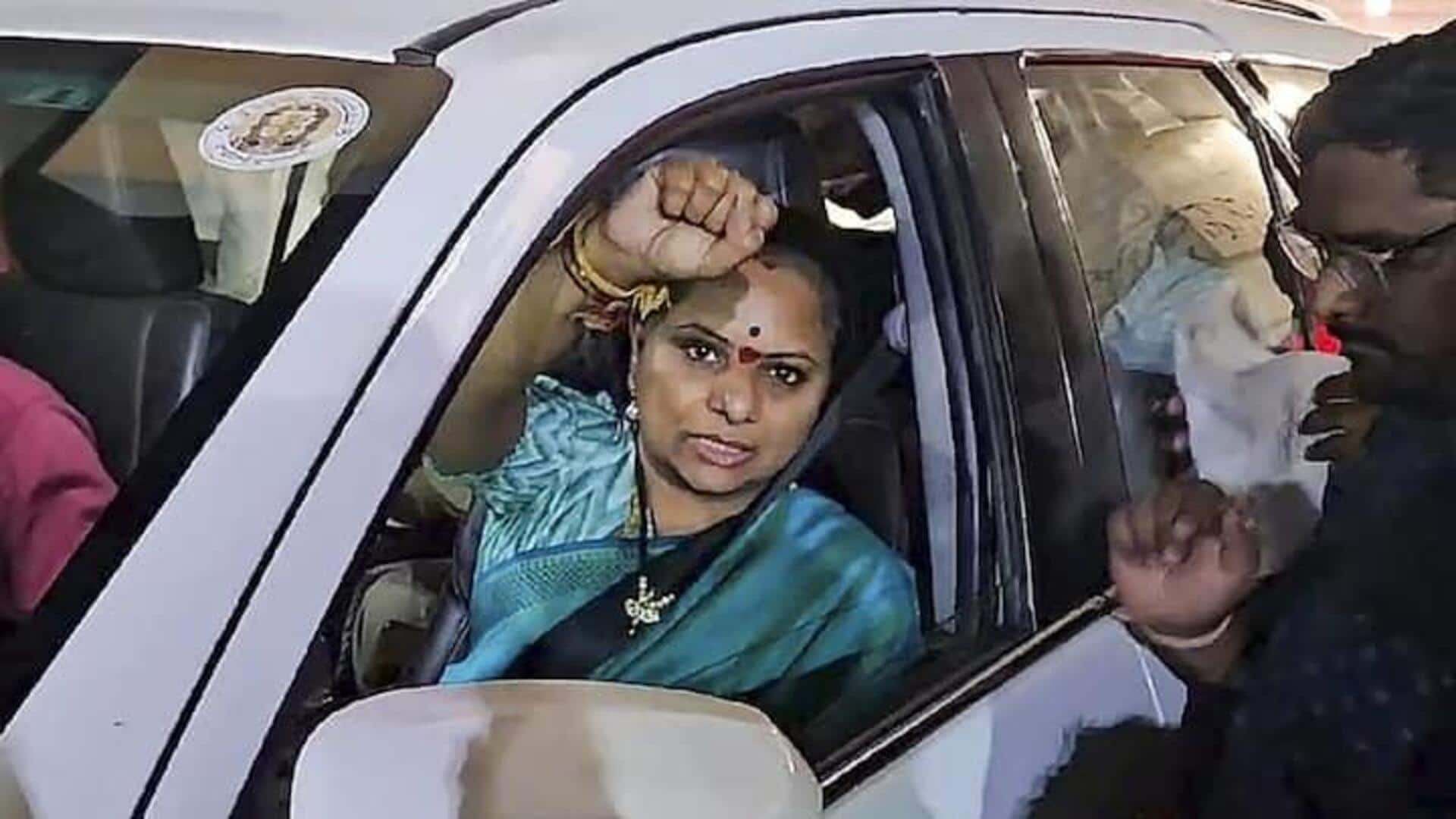
SC grants bail to K Kavitha in excise policy case
What's the story
The Supreme Court on Tuesday granted bail to Bharat Rashtra Samithi leader, K Kavitha, who was arrested in March by the Enforcement Directorate and the Central Bureau of Investigation in connection with the Delhi excise policy case. The court decided that all necessary evidence had been collected and further custody of Kavitha was unnecessary for the ongoing investigation. Notably, the court had granted bail to former Deputy CM Manish Sisodia on similar grounds in the same case.
Context
Why does this story matter?
To recall, the ED has accused Kavitha of being a key member of the "South Group," which allegedly bribed the AAP with ₹100 crore in exchange for liquor licenses under the policy. The money was then allegedly used by the AAP to fund its election campaigns in Goa and Punjab. Other prominent names that featured in the "South Group" include YSRCP MP Magunta Srinivasulu Reddy, his son, CA Butchibabu Gorantla.
Arrest details
Kavitha's arrest and initial bail rejection
Kavitha, the daughter of former Chief Minister K Chandrasekhar Rao, was initially taken into custody by the ED in March over her alleged involvement in the alleged scame. She was later arrested by the CBI in April. In July, her bail plea was denied by the Delhi High Court on grounds that she is a key suspect and that there were no valid reasons for bail as investigations were at a "critical stage."
Bail arguments
Court dismisses gender-based bail plea
The HC had also dismissed Kavitha's plea for bail on the basis of her gender, saying that as an educated individual and former MP, she could not be considered "vulnerable." Senior advocate Mukul Rohatgi, representing Kavitha, argued that it is "normal practice" for women to be granted bail. He also highlighted that despite spending over five months in jail, neither agency had recovered the alleged bribe paid by her to the AAP.
Evidence dispute
Allegations of evidence tampering and SC's response
Separately, the prosecution alleged that Kavitha had deleted crucial text messages from her mobile phone and reformatted it, accusing her of wiping clean eight phones and reformatting at least one in June. However, Kavitha denied these allegations. The Supreme Court remained unconvinced by the prosecution's arguments about evidence tampering, noting that "people delete messages."